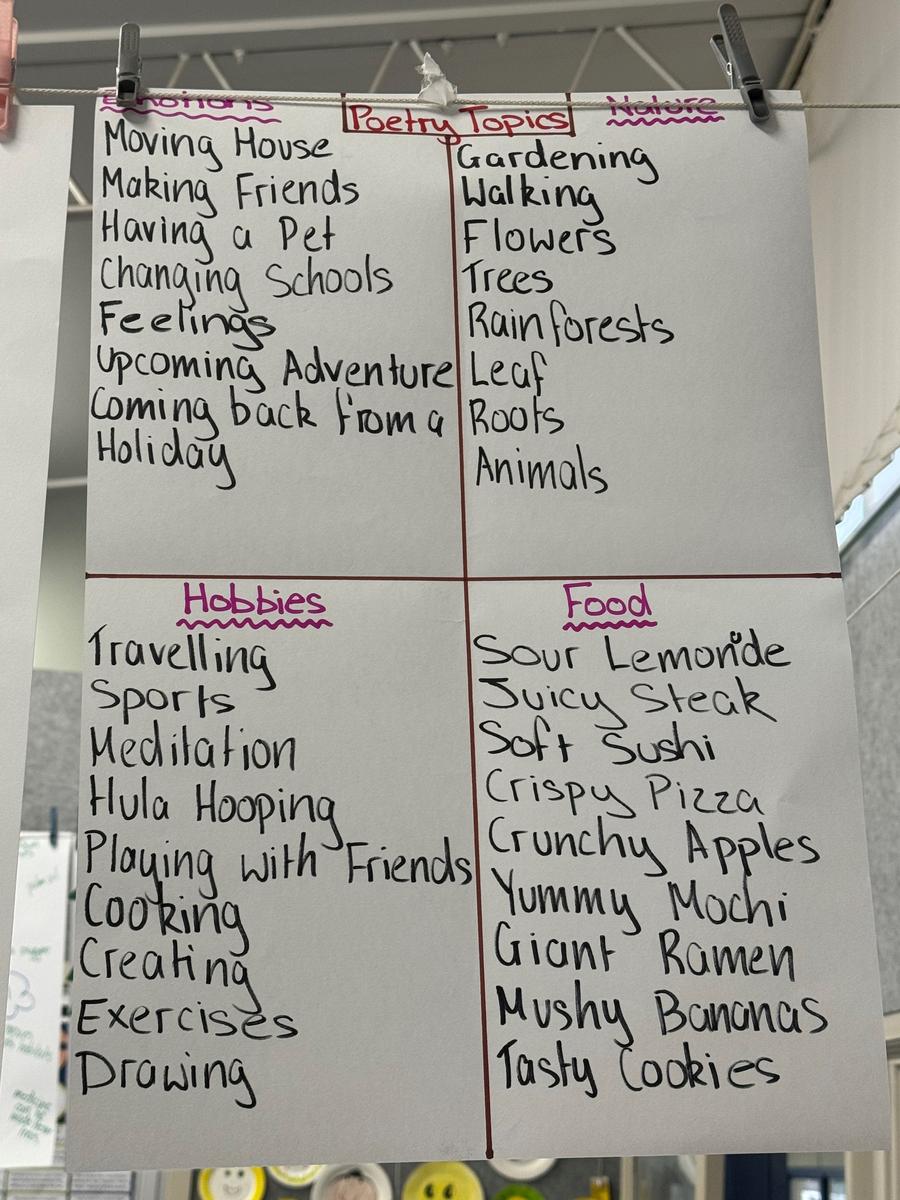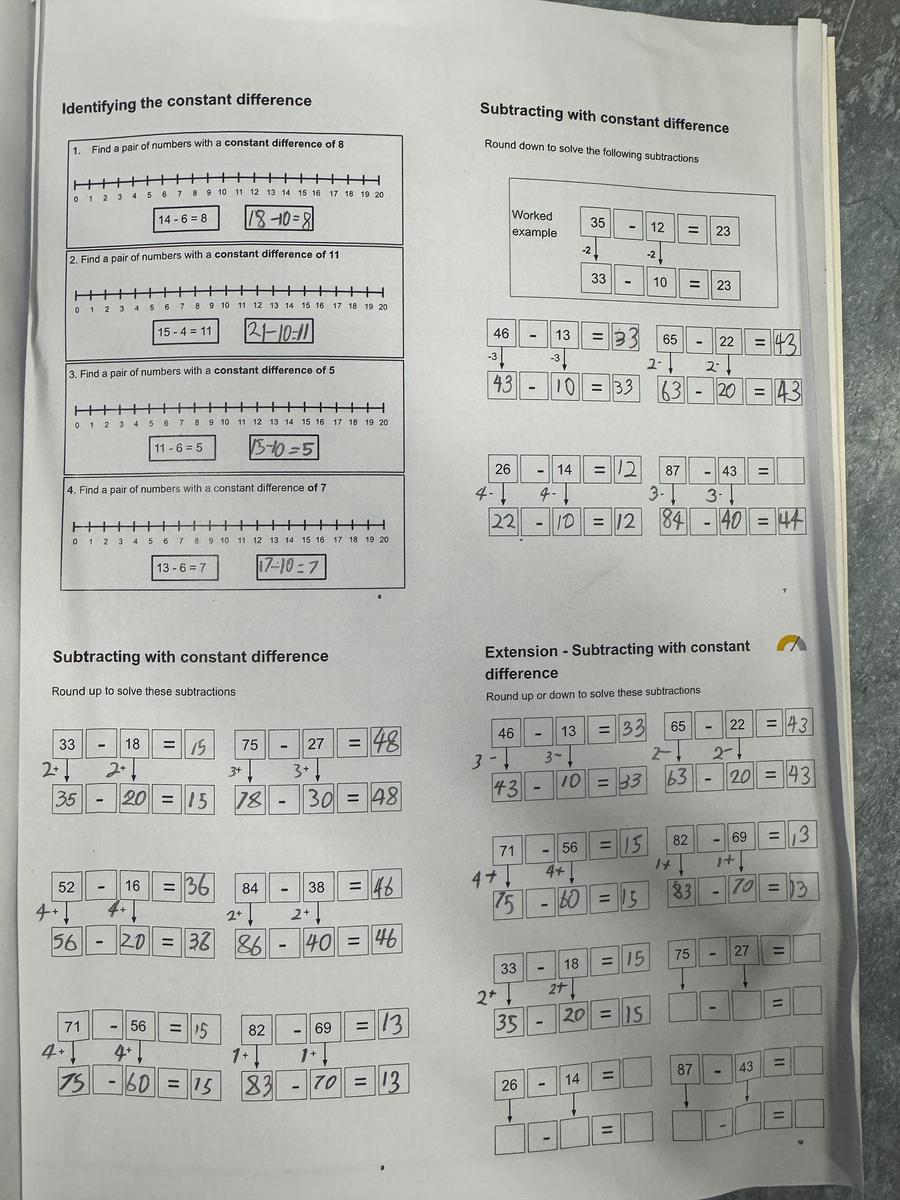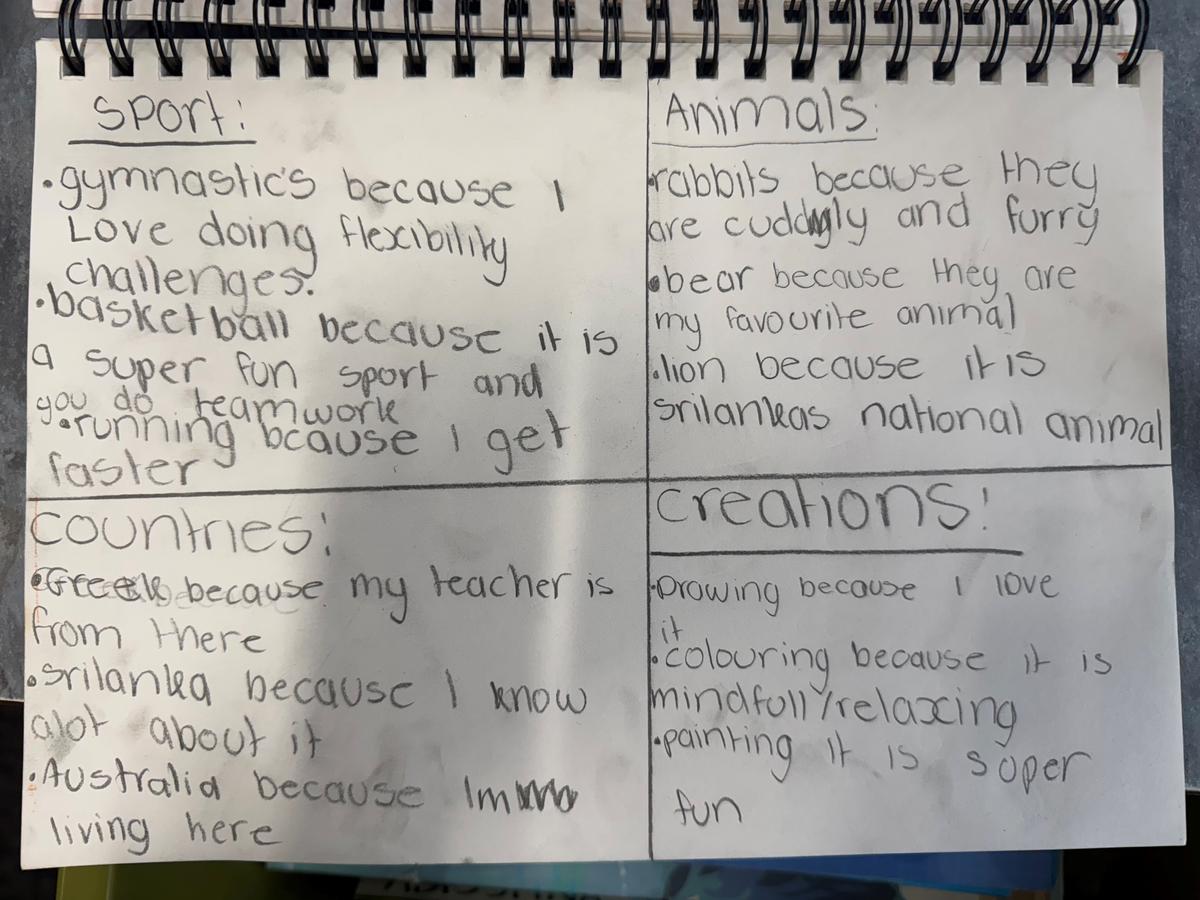Term 3 Level 3 Newsletter

English
Reading
The Reading and Viewing curriculum for this term will be structured with a focus on further developing students' understanding and enhancing their learning experiences. Students will be exposed to a diverse range of CAFÉ reading strategies to support accurate reading and comprehension of different types of texts, including letters, emails, and a range of poetry. Throughout the term, students will actively engage in comparing and contrasting texts, identifying the author's purpose, creating mental images, and tuning into interesting and emotive language as they analyse various texts.
As part of the Level Three Home Reading program, it is an expectation that students read for fifteen minutes each night. It would be wonderful if you could support your child’s reading and assist them with their comprehension by discussing the book with them.
Key Vocabulary:
- Descriptive
- Emotive
- Stanza
- Verse
- Formal
Writing/Spelling
In Term Three Writing, students will immerse themselves in a variety of poetry styles. They will be exposed to and discuss the characteristics of different poems, including structure, vocabulary, themes, and rhythm and rhyme. The learners will visualise meaning and describe the emotive effect a poem has on them as an individual. Students will explore specific and powerful vocabulary around ideas of personal interest, justifying their language and stylistic choices when creating poems. They will construct and revise their own poems using a style of personal preference.
In Spelling, students will select personalised and class focus spelling words. Personalised words will come from learners’ reading and writing, whilst focus words will come from weekly Inquiry or Spelling OCHRE learning. Students will conduct personalised spelling inquiries into their spelling words, investigating the origin, spelling patterns, and meaning of their words.
Key Vocabulary:
- Emotive Language
- The 5 senses – Sight, Hearing, Taste, Touch, Smell
- Personification
- Compose
How can you support your child’s English learning at home?
- Discuss ideas of personal interest in everyday life to stimulate ideas for writing poetry, such as nature, hobbies, or family experiences including outings, meals, and games.
- Talk about the five senses, (touch, taste, see, hear, smell), that you experience when engaging in everyday family activities, such as when playing at the playground or going out for dinner.
- Practice personalised spelling words by discussing the meaning of words and using the ‘look, say, name, cover, write check’ strategy.
Mathematics
In Term Three, students will continue to develop their problem-solving strategies across all four operations—addition, subtraction, multiplication, and division. They will use concrete materials and regrouping methods to explore and solve a variety of mathematical problems. Students will learn to identify decimals on a number line and order numbers to two decimal places. They will also apply their understanding of decimals in real-life contexts such as financial maths and measurement activities.
In Measurement, students will use right angles as a tool to help classify and compare different types of angles. They will also focus on telling time to the minute using analogue clocks and making clear connections between analogue and digital time formats.
Key Vocabulary:
Regrouping
Tenth
Hundredth
Coin
Note
Equation
Right angle
Horizontal
Vertical
How can you support your child’s Mathematics learning at home?
- Involve your child in using money at the shops, for example, counting change, comparing prices, or calculating discounts.
- Ask your child to read both analogue and digital clocks throughout the day.
- Practice skip counting and times tables while walking, driving or during chores.
- Go on an “angle hunt” at home and classify angles as right, acute or obtuse.
Inquiry
Inquiry Question: How does our country continue to change?
In Term 3 Learners will learn about important events, experiences and effects of early colonisation in Australia during 1750- 1800, focusing on the viewpoints of Aboriginal and Torres Strait Islander Peoples and the arrival of new people to the land.
They will investigate the reasons and outcomes of British settlement, particularly on Gadigal Country in 1788, and inspect how colonisation impacted Indigenous communities and the environment.
Through historical investigation, learners will examine primary and secondary references, order events and research different interpretations of history, as well as the concept of Terra Nullius.
They will also learn about the importance of Country and Place to First Nations Peoples, the offerings of diverse communities and the significance of national symbols, events and remembrances such as NAIDOC Weeks, ANZAC Day, and Reconciliation Week in forming Australian identity.
Key Vocabulary:
Colonisation
Indigenous
Settlement
Terra Nullius
Country
Remembrance
How can you support your child’s Inquiry learning at home?
- Investigate books and videos that show First Nations stories and the effects of colonisation
- Visit local historical sites or cultural centres to link learning with real world experiences
- Discuss different viewpoints on colonisation, national events like NAIDOC Week, and Australian identity
- Assist your child with building a timeline or picture representation using historical references to understand important events
- Look at podcasts, stories and media made by Aboriginal and Torres Strait Islander peoples.
Wellbeing
The Resilience Project
This term in Wellbeing, students will continue their learning through The Resilience Project, focusing on key areas of Gratitude, Emotional Literacy, and Mindfulness.
In our Gratitude lessons, students will reflect on how comparing our lives to others can affect our feelings of contentment. They will also explore how appreciating the people around them and recognising others’ strengths can improve relationships and support a more positive mindset.
Emotional Literacy lessons will guide students in noticing and naming a wide range of emotions, describing them using rich language such as idioms, metaphors, and similes. They will learn to reflect on their physical responses to emotions and practise using positive coping strategies to manage challenging feelings.
Our Mindfulness learning will help students become more aware of their screen time habits. They will explore the difference between passive and active screen time and reflect on how to create a healthy balance that includes screen-free activities they enjoy.
Key Vocabulary:
Gratitude
Emotions
Coping
Strategy
Mindfulness
Balance
How can you support your child’s Wellbeing learning at home?
- Share what you’re grateful for and ask your child what made them smile today.
- Talk about how emotions feel in the body and discuss healthy ways to cope.
- Encourage conversations about what they enjoy doing offline and how it makes them feel.
Cyber Safety Project
In our Cyber Safety lessons this term, students will continue building their understanding of how to stay safe and emotionally well in online spaces. They will explore strategies for managing their emotional responses when faced with tricky or upsetting online experiences.
Students will learn about the effects of peer pressure and practise ways to stay strong and make safe choices, both online and offline. Through role plays and guided discussions, they will also explore the concept of FOMO (fear of missing out), recognising how inclusion and exclusion can impact emotions and self-esteem.
To wrap up the term, students will take on the Digital Balance Challenge, categorising their online activities as either creation or consumption and planning for a healthy digital balance in their daily lives.
Key Vocabulary:
Peer Pressure
Emotional Response
Digital Balance
Online Safety
How can you support your child’s Cyber Safety learning at home?
- Talk to your child about how they feel when using technology.
- Discuss ways to respond if something online makes them feel uncomfortable.
- Encourage healthy screen time habits and model balance in your own screen use.
- Reinforce the importance of making kind and respectful choices online.



